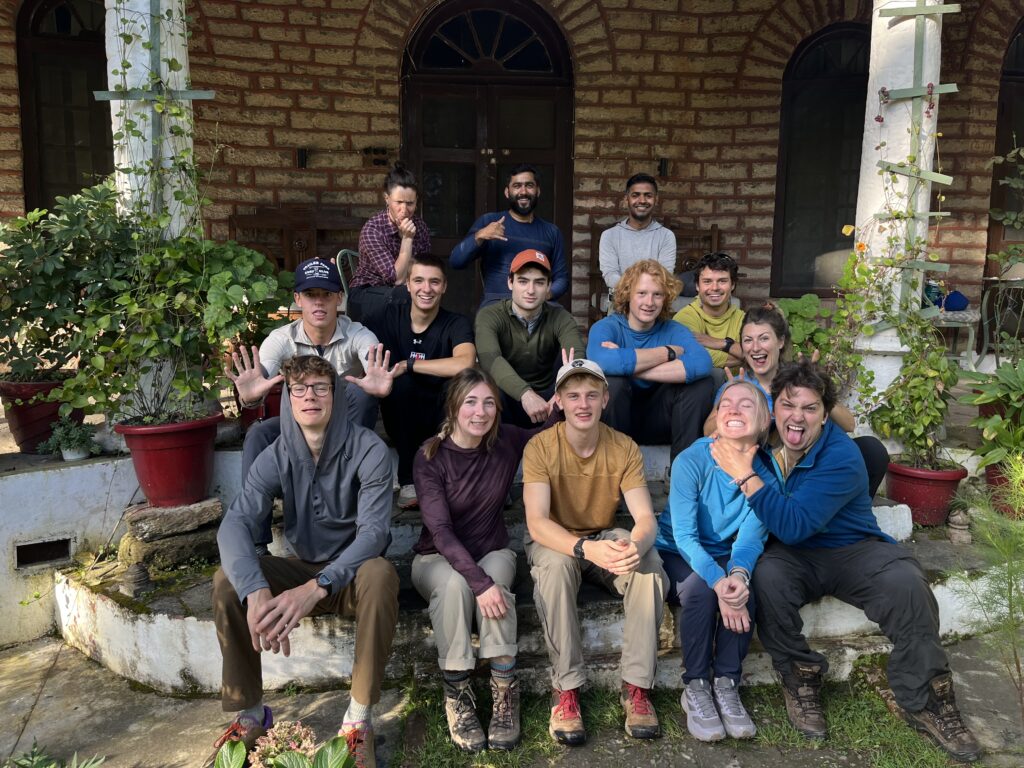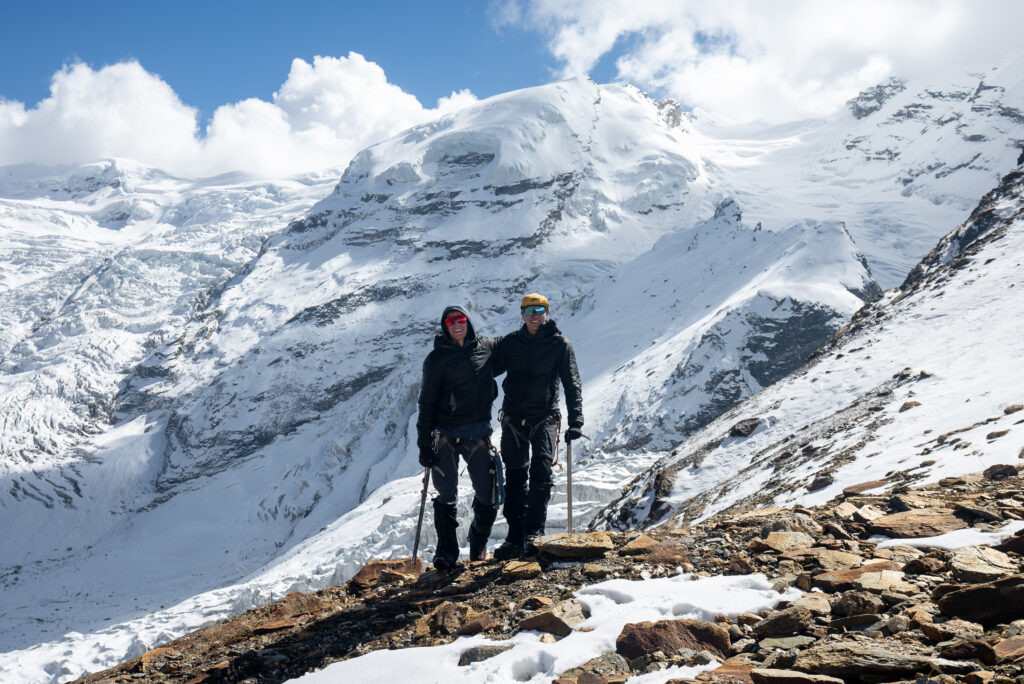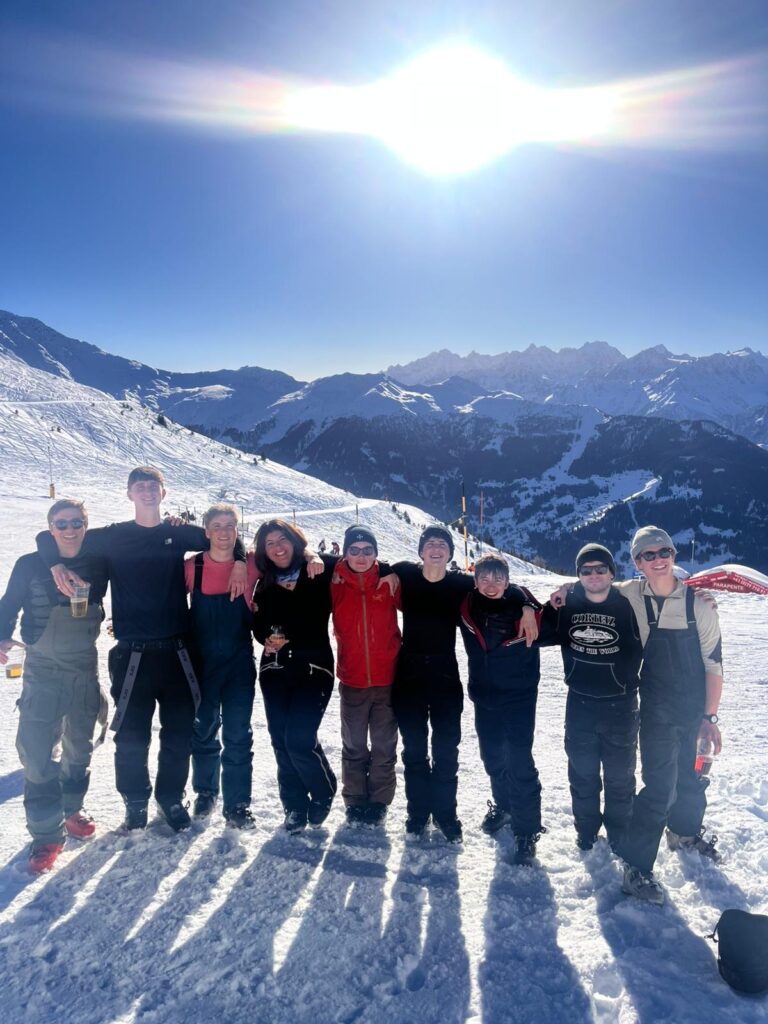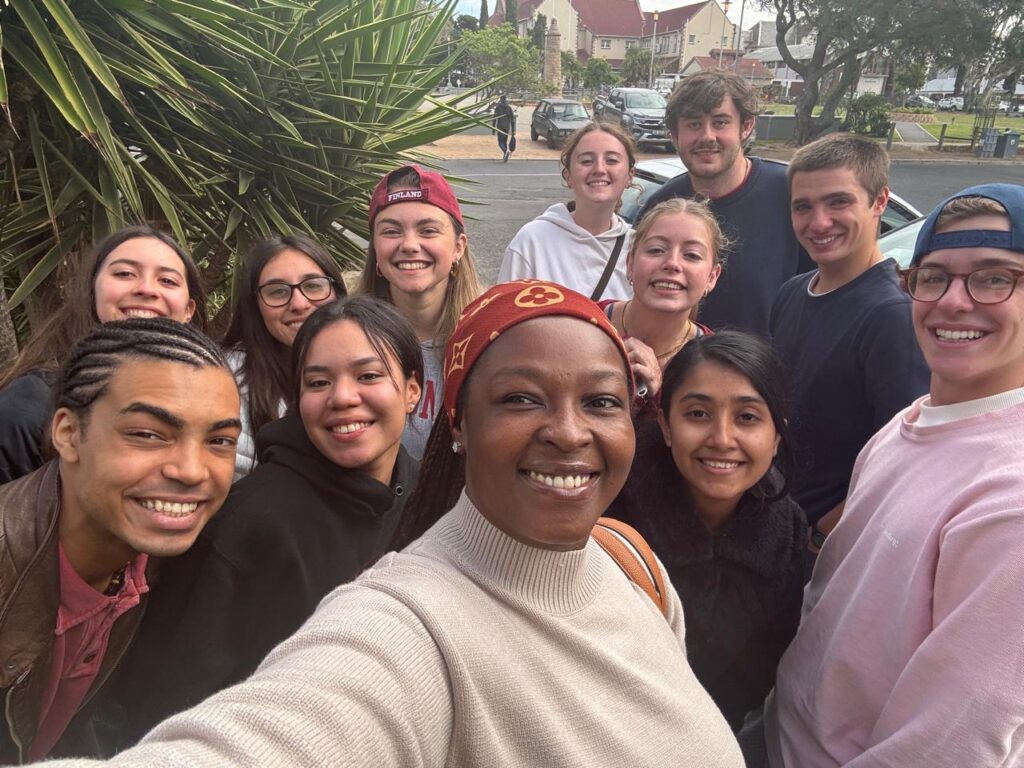
‘Community’ is a word that appears everywhere: school programming, mission statements, and on the website of the very program I am in right now. At St. George’s, it was gospel, both literally and figuratively, and here on my gap year, it’s both a promise to live and a puzzle to unlock. However, it wasn’t until my time in Cape Town, at Take Action Lab, that I began to unpack what community means not as a concept, but as a lived experience.
Across the months and continents of my gap year, I experienced a plethora of communities, each one vastly different yet overwhelmingly positive. Mountaineering in India, we huddled around a camp stove cooking with the Himalayan stars’ twinkling, reflecting in the snow in our eyes. Learning ski instruction in Switzerland, we walked back from the mountain with skis digging into our shoulders as our laughs drowned out the clacking of our boots on the pavement. In South Africa, overlooking the ocean as the sunset painted Table Mountain burning gold, the sea breeze carried our laughter down to the beach. Moment to moment, each of these experiences was totally unique. What was it about these people and places, as diverse as they were, that made our time together so special?
In other words, how do we define community experientially?

India
When I look back on Thomas and my trip through the mountains of northern India, I often find myself expecting to remember the grandeur, the animistic, palpable sense of nature as a force beyond our understanding. And I am not wrong to expect that: it is something that has stuck with me. But, despite my best attempts to avoid something cliché, the element of that trip that keeps coming back to me is the people. In a previous blog post, I tried to analyze why that particular community of aspiring (and actual) outdoorsmen was so incredible, and I came to the idea that each person was unique in their collective surrender, confidence, and introspection. This trinitarian ‘adventurer’s spirit,’ as I called it, while accurate to my experience in India, was painfully specific to that community, one deeply intertwined with the outdoors and the landscape around us.
Over the next few months, I came to realize that, at a broader level, that community was special because of its inherent interdependence. Physically tied together with ropes, each of us carried the food we all ate, the fuel we used to cook it, the drums of water needed, the tents we slept in, and everything else we needed to survive. There was no “I,” no individual pushing back against the mountain’s stark serenity alone. We were in it together, the most elemental version of community, a collective forged in shared vulnerability. Against the harsh nights, as our breath froze against the inner walls of our tents, ego dissolved, and all that was left was the realization that these were the people who you needed, and who needed you.

Switzerland
My experience of community from my time in Switzerland was a similarly revolutionary community, although in an entirely different sense. Just as in India, I came to deeply love everyone — a cranky group of party-loving ski instructors. We laughed together, ate together, cried together, yet at a fundamental level, unlike trekking through the Himalayas, we were still individuals chasing our own goals. I wanted each person to pass their BASI exams from the bottom of my heart, but I also knew that their success wasn’t linked to my own. Had they not been there, I would still have achieved my goals. This was a different kind of bond, one borne of a million little moments telling stories around the dinner table, admiring the quality of each other’s turns, laughing at the puffs of snow in the air from a failed trick. It was a bond built not on an essential vulnerability but on solidarity, a camaraderie of mutual respect and admiration. If India was the ropes tying us together, Switzerland was the constellation we saw every night, each of us a star with its own trajectory and history loosely held together by a shared time and space. This inherent independence was not a weakness — it was simply a different kind of bond: we were a community of the self, each of us growing with each other, not because of each other, a community where belonging was a byproduct, not a precondition.
These were two versions of community diametrically opposed – one built on necessity, on shared vulnerability and an inescapable dependence on one another, the other grown from independence, individual journeys which happened to parallel, like our skis, for a time. Which was it? Was community something you built because you needed each other, or something you stumbled upon while walking your own path? It was this tension, its seeming irreconcilability, which knotted itself up in the back of my mind as I watched the sunrise over the mountains while the plane landed in Cape Town.

Cape Town
In Cape Town, I found a group that broke that binary. Like in Switzerland, we were individuals: I was constantly struck by the obvious expressiveness of everyone, their uniqueness of character and aesthetic. Everyone was so confident in their passions, in their choice of clothing, showing off unique tattoos and piercings, and wearing all types of makeup; in themselves, they were utterly uncompromisable. The fierceness of our individuality sometimes startled me. It was blatantly obvious in conversation that we all were on unique parts of unique paths: some university graduates, some on their second gap year, some pursuing dreams of success, and others dreams of fulfillment, some who held in their past intense trauma, others who had fairytales of coastal towns in Ireland or on the Mediterranean. As the days turned to weeks, some went on trips to the beach, others on hikes, others preferred to stay at home on the weekends, some to read, some to chat, some to build startups in their room.
During our three months together, we each walked our own path, side by side. Yet at the same time, everyone just clicked.
I’ve never been a part of a group that connected so quickly and seamlessly gelled into a cohesive mass of connection and friendship. There was an openness and a passion to learn and experience, to be vulnerable with one another, and to genuinely get to know everyone in our cohort. As in India, each of us was metaphorically tied together, our success undeniably collective. To experience Cape Town to the fullest, to make sense of a new city and country, to thrive in workplaces and apprenticeships with strangers, and to find joy, meaning, and happiness, we needed each other.
As sweat dripped from our brows on a hike up Table Mountain, the city shimmering in the illusory way only heat and fatigue can make, we needed each other. As we sat, too many people around too small of tables, at childishly colorful restaurants, straining to read menus by candlelight, each of us finding at least one or two words we didn’t know corresponded to anything, much less pizza toppings, we needed each other. As we sat in the park after playing tennis, backs to each other, listening to the mourning doves coo and the commotion of dogs and children in playgrounds nearby, sharing about the things we normally reserved for therapists, we needed each other.
Paradoxically, our group was defined both by our differences and shared values — and bound through the life-changing program we experienced together.
In Hegel’s Phenomenology of Spirit, the philosopher argues that the basis of consciousness is dialectical, a constant push and pull of itself into and out of itself. It is in this contradiction, Hegel posits, that consciousness evolves into self-consciousness, lifting to become a higher unity. Evolution through contradiction. I lived this idea in Cape Town. The dependence I surrendered myself to in India; the independence I claimed in Switzerland —they’re two contradictory yet necessarily intertwined parts of the community as a whole. Rather than canceling each other out, they collided and lifted into something richer, a community that was both utterly for me and utterly beyond me. We were no longer tied by rope, nor untethered in constellation – we chose to link arms as we walked this path together.
Cape Town was the capstone of my gap year journey, challenging me to rethink my understanding of community. And yet, I still don’t fully know what community is, but I now have a better idea of how to recognize its shape and its fractal outline, even as it shifts between islands of necessity and solidarity on the Hegelian sea of existence. As I continue onwards, towards my life at Duke, and beyond, to new cities, new friends, and new communities, I will carry this with me. My time in South Africa was an incredible experience in innumerable ways, and I can’t begin to express how much I appreciate it and how much I learned.
The St. George’s chaplain’s weekly concluding words were always a quote by Henri-Frédéric Amiel. At the time, these words didn’t mean much to me, a kind of hollow hallelujah, but they have recently taken on a new force, a new meaning for me. I want to share them with you, for the sake of all of these communities and for the ones I haven’t met yet. “Life is short. We don’t have much time to gladden the hearts of those who walk this way with us. So, be swift to love and make haste to be kind.”
– Ryan Growney
Co-founder, Service Academy
